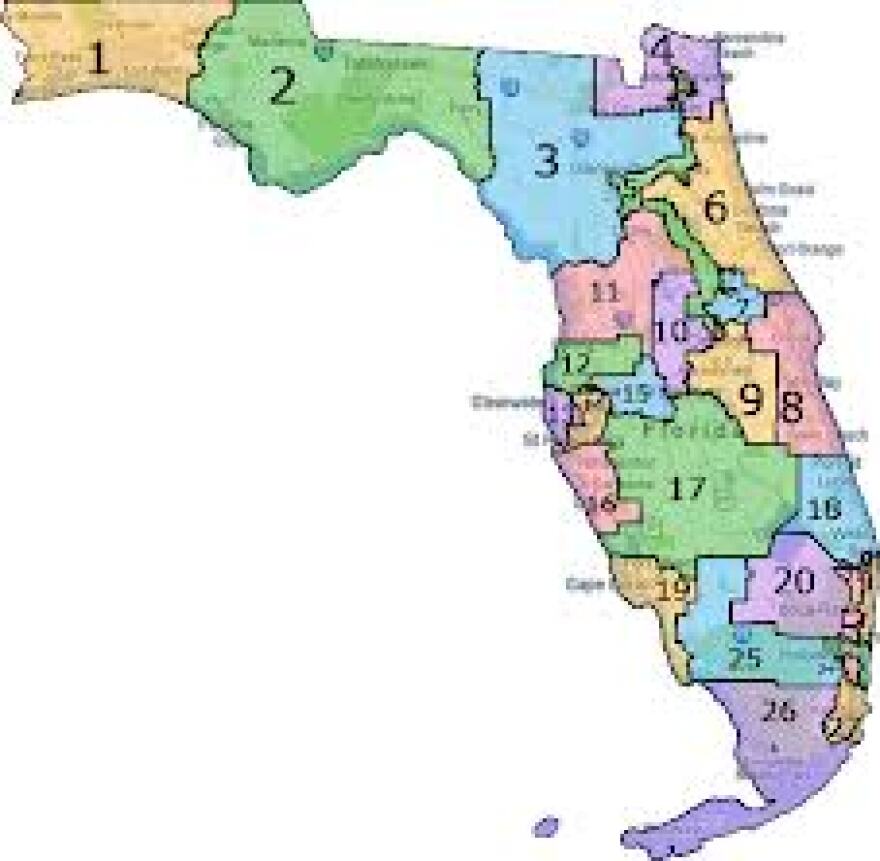After years of legal wrangling, two special sessions and much political finger pointing, a judge is going to try to sort out the mess left from squabbling over Florida's 27 congressional districts.
Judge Terry Lewis on Thursday will preside over a trial where he will consider seven different maps that would each alter the state's political landscape. Lewis is expected to recommend one of the proposals to the state Supreme Court for final approval.
"I would really like to see resolution," said State Sen. Bill Galvano, the Bradenton Republican who was in charge of the last round of redistricting for the Senate. "I want a constitutional map and one that the Supreme Court will sign off on."
The long-running battle over the state's congressional districts began in 2012 when a coalition of groups, including the League of Women Voters of Florida, challenged the map adopted by the Republican-controlled Legislature. But it took on a greater urgency after the Supreme Court this past July gave legislators 100 days to come up with a new map.
Voters in 2010 approved the "Fair Districts" measures that mandate legislators cannot draw districts intended to help incumbents or a member of a political party. Lewis last year ordered a change to the map and legislators held a rare summer special session to make changes.
But the groups who challenged the map appealed it to the state Supreme Court. That led to a stinging ruling in which a majority of justices said that eight districts were drawn to benefit the GOP and ordered that districts be redrawn.
House and Senate Republicans, however, deadlocked during an August special session as they disagreed over potential changes to districts in the Tampa Bay region. Senate leaders asked for another special session, but House Republicans said they were fearful that the Senate proposals would cause the courts to reject the map yet again.
During the trial Lewis is expected to hear from legislators, legislative staff and others involved in drawing up the different proposals. The Senate offered up two versions, while the House filed the same map that chamber voted for last month. The groups that sued the Legislature have given the judge four different maps.
If ultimately adopted by legislators, several incumbent members of Congress - including U.S. Rep. Gwen Graham and U.S. Rep. Dan Webster - could find it hard to hold on to their current seats. The new map could also help resurrect the political career of former Gov. Charlie Crist, who will likely mount a run for a reconfigured House seat in Pinellas County.
Part of the trial will likely produce partisan fireworks.
During the initial round of legal wrangling Republicans were accused of running a "shadow process" where they relied on GOP consultants to produce maps intended to favor GOP candidates. But recent court filings show that the groups who sued the Legislature have consulted with Democratic-aligned groups to draw up the proposals they have offered to the judge.
One of the groups had their map reviewed by the Democratic Congressional Campaign Committee while the other group's map was drawn up by a firm founded by someone who worked on President Barack Obama's 2008 campaign.
Lawyers for the House have asserted in one motion that the maps "were drawn, reviewed, discussed, modified, and approved in a closed process, in complete darkness, by national political operatives. The fact that plaintiffs' maps, despite their origins, are pending before the trial court for a possible recommendation to this court should dismay and disturb all Floridians."
David King, an attorney for the League of Women Voters and other groups, said in a statement that "the Legislature would rather attack and try to smear the plaintiffs in this case, than defend the constitutionality of its own maps."



